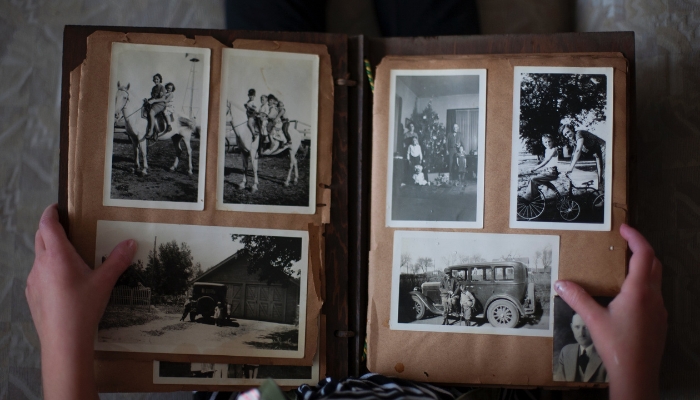
You’re eager to unravel your family’s past, aren’t you? Obituary searches play a crucial role in genealogy. They’re like puzzle pieces, each one revealing more about your bloodline.
To undertake a genealogy obituary search means to engage in the thoughtful exploration of ancestral pasts, using obituaries as crucial historical records that provide insights into the lives, relationships, and contributions of our forebears.
Yet, they’re not always easy to find. In this article, you’ll learn effective strategies for obituary searches, overcome common challenges, and, ultimately, piece together your family’s history. Let’s delve into the exciting world of genealogy obituary searches.
Table of contents
Understanding Genealogy Obituary Searches
When you’re delving into your family’s past, one useful tool you shouldn’t overlook is a genealogy obituary search. These obituary searches can reveal a wealth of information about your ancestors that you may not find in other family history records.
An obituary database is a vast repository of death notices, often dating back centuries. These records, coupled with a genealogy surname search, can provide critical details about your ancestors’ lives and deaths, including their names, dates of birth and death, cause of death, and sometimes, their occupations and hobbies.
Genealogy bank obituaries, for instance, can offer valuable insight into family histories. They can help you connect the dots between different generations, track the geographical movements of your family over time, and even discover relatives you didn’t know you had.
But be warned, these searches require a methodical, analytical approach. You’ll need to sift through potentially hundreds of records, cross-referencing details and verifying information. It’s meticulous work, but the potential rewards are significant.
Importance of Obituaries in Genealogy

While you’re meticulously sifting through records and cross-referencing details, it’s crucial to understand the indispensable role obituaries play in genealogy. Obituaries, more than just a newspaper announcement of a death, are rich sources of personal and familial information. They’re the gateways to understanding your lineage better.
Here’s why the importance of obituaries in genealogy can’t be overstated:
- Obituary records: These provide vital data like dates of birth and death, locations, and immediate family members of the deceased person. It’s like finding a mini biography in a newspaper column.
- Historical societies: Obituaries help to trace local histories and societal changes over time, helping you understand the world your ancestors lived in.
- Biographical sketches: Obituaries often include personal anecdotes, professions, and achievements, offering a glimpse into the life of the deceased.
- Deceased person: Contrary to census records that only record the living, obituaries record the deceased, filling the gaps in your family tree.
Obituaries, therefore, should be an essential part of your genealogical research. They’re not just death notices, but windows into your ancestors’ lives, turning names and dates into real people with stories.
Techniques for Searching Obituaries
Often, you’ll find yourself needing to search for obituaries in your genealogical research, so let’s delve into some effective techniques to aid in that process.
First, start your obituaries search by visiting online obituaries. Many newspapers maintain a digital obituary collection, becoming a valuable resource for your search. Use the deceased’s name and date of death, if known, to narrow down your results.
Next, leverage obituary databases. Websites like Legacy or Ancestry compile obituaries from multiple sources and may offer options for a genealogy search by social security number. Providing a comprehensive platform for your obituary lookup. Don’t forget to utilize the search filters to hone in on specific time frames, locations, or family names.
Lastly, consider reaching out to local libraries or genealogical societies in the area where your ancestor lived. They often have obituary collections that may not be digitized, providing a possible treasure trove of information.
Online Resources for Obituary Searches

When diving into the world of genealogy, online searches are a gateway to uncovering the past. The internet is rich with databases of obituaries, each serving as a collection of life stories waiting to be discovered. These digital obituary indexes have transformed the way we access historical records, making it possible to find information about deceased ancestors with just a few clicks.
Overview of Top Online Obituary Databases
The United States boasts numerous archive sites that hold billions of records, including historic newspapers and digitized newspapers. Websites like Ancestry.com Access provide a vast American obituary collection, which includes everything from famous people to the everyday citizen. GenealogyBank obituaries stand out as a treasure trove, offering a comprehensive obituary database that spans centuries.
For those with a library card, the Boston Library Obituary Database is a valuable resource. It allows you to browse through hundreds of newspapers and gain access to obituaries that might hold the key to your family history. Similarly, the Chronicling America project by the Library of Congress offers free access to historic newspapers from across North America.
How to Use GenealogyBank for Obituary Searches
GenealogyBank is a powerful tool for anyone conducting a genealogy obituary search. With its vast collection of obituaries, it’s like having an all-year obituary index at your fingertips. To use GenealogyBank effectively:
- Start by entering the name of the person in the search bar.
- Narrow down the results by specifying the location of death, time of death, or age at death.
- Explore actual obituary entries and obituary transcriptions to gather detailed biographies and clues about relationships within families.
Other Valuable Online Resources and How to Access Them
Beyond GenealogyBank, there are other informative obituary resources such as the Colorado Obituary Project and the Smyth County News & Messenger archives. These local collections can offer more detailed death information, especially if your ancestors were from those areas.
Memorial websites and contributer-based websites like Find A Grave provide cemetery records and death certificate images, often uploaded by volunteers. These sites can offer additional options and advanced options for searching, such as by cemetery searches or religious affiliation.
For those researching African-American obituaries or Mennonite obituaries, specialized collections exist that cater to these communities. They provide user-written obituaries and sometimes even obituary transcriptions.
In conclusion, the wealth of online resources available for obituary searches is vast and varied. From GenealogyBank’s historical newspapers to local county officials’ records, there’s a source for nearly every need. With these tools, you can piece together the lives of your ancestors, one informative obituary at a time.
Common Challenges and Solutions

So, what challenges might you encounter during your genealogy obituary search and how can you overcome them? Let’s explore common challenges and solutions.
Firstly, you might struggle to find relevant obituaries. This is often due to limited or non-searchable databases. To overcome this, use an online database with a comprehensive and searchable database. Websites like Ancestry.com or FindAGrave can help.
Secondly, you may encounter obituaries lacking detail. This lack of information can hamper your efforts in building a complete family tree. The solution? Look for detailed obituaries, often found in local newspapers or historical archives.
Next, the overwhelming amount of information can be daunting. Here’s how to tackle this:
- Organize your findings systematically.
- Use filters in your online database for targeted searches.
- Document everything – notes, dates, names.
- Take breaks. Genealogy obituary searches can be time-consuming.
Lastly, you may face difficulties verifying the accuracy of the information. Cross-reference your findings with other sources, such as birth or marriage records, to ensure their validity.
Case Study: Successful Obituary Searches
In your pursuit of tracing your family’s lineage, let’s delve into a case study that showcases a successful genealogy obituary search.
In this instance, a family historian aimed to track down their great-great-grandmother’s past, with only her name and birth date as starting clues.
Initially, the researcher used databases of death records, cross-referencing the information against historical records from the late 19th century. Though they found several women with the same name, none matched the birth date.
The researcher then turned to newspaper obituaries, and here, they struck gold. A local newspaper from 1902 held the obituary of a woman with the same name and birth date. It detailed her surviving family members, her place of birth, and even her maiden name.
The obituary served as a valuable piece in the researcher’s genealogy obituary search, providing links to other potential ancestors and geographical locations to explore further.
This case study underscores the value of maintaining a methodical approach in your search. It also highlights the potential of various resources, from databases of death records to newspaper obituaries.
With patience and persistence, your successful obituary search can reveal layers of your family’s history waiting to be discovered.
Conclusion
In wrapping up, you’ve seen how crucial obituaries are in genealogical research. You’ve learned techniques to streamline your search and tackle common challenges.
Remember, patience, methodical analysis, and the application of genealogy search tips are key to uncovering your family history. The case study should inspire you to dive deep into your family past.
So, don’t wait. Start your genealogy obituary search now, and uncover the fascinating stories hidden in your lineage.
FAQs
Q: How do I find an obituary from years ago?
You can find old obituaries by using online resources like GenealogyBank or Chronicling America, which offer digitized newspapers and obituary indexes. Local libraries and historical societies may also have archives of newspaper articles.
Q: Are obituary searches free?
Many resources offer free access to obituaries, such as Chronicling America. However, some sites like GenealogyBank may require a current subscription.
Q: What information is needed to search for an obituary?
The most helpful details are the full name of the deceased, the location of death, and the time of death. Additional details like religious affiliation or cemetery records can also be useful.